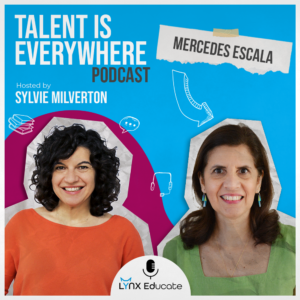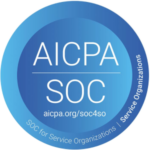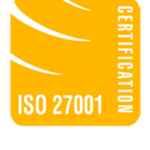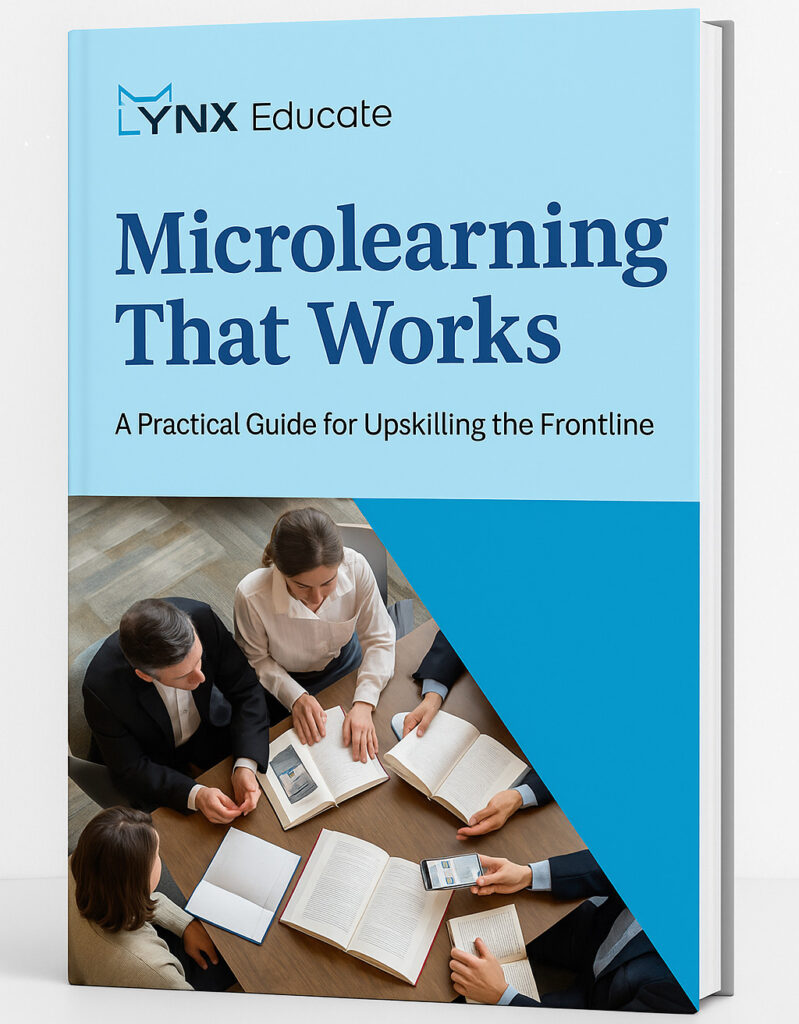#7: Mercedes Escala - Season 1, Episode 7 - Talent is Everywhere!

About the Episode:
In this episode, Sylvie sits with Mercedes Escala, who is the Vice President of Talent and Learning at Genesys, a global company present in over 100 countries.
Mercedes discusses Genesys’ talent strategy and its alignment with the company’s vision for customer and employee excellence. She highlights the importance of building a strong foundation, involving business leaders in the process, and keeping the strategy simple yet effective.
Mercedes shares insights into personalized career journeys, the role of AI in talent development, and the integration of diversity, equity, and inclusion into company programs.
Looking ahead, she emphasizes the goal of increasing internal mobility and creating a talent destination where employees feel valued and empowered to drive business outcomes.
Transcript
Mercedes:
As I started mentioning the employee experience and the customer experience are both significantly important for our company and our key pillars to who we are. So driving that outstanding employee experience through the talent strategy is definitely in the horizon for us.
Sylvie:
Hi, I’m Sylvie Milverton, CEO of Lynx Educate. This is “Talent is Everywhere”. We’re here to talk about how to keep talent and how to develop talent in order to build a strong business. We’ll interview leaders to hear their best experiences of how they invested in people.
Today we’re speaking with Mercedes Escala, who is VP, talent and Learning at Genesys, which is a global company managing customer experience on the cloud. She’s been there for three years and has built the talent strategy from the ground up. And prior to that, she had many HR leadership positions at IBM.
And so today we’re going to talk about this journey that you’ve had, at Genesys, what you’ve, built from the talent strategy perspective. So perhaps we can start with the context, maybe tell us more about the company and what business challenges, you know, provoke them, your need to launch this. And what were you what was your task when you joined the company?
Mercedes:
Sure! Yes, thank you so much for having me in. So we’re happy to be here. Well, let me just frame it this way. I joined the company that really had a great vision in front of them and wanted to drive excellence for customer experience and excellence for employee experience.
So for me, those were the two main drivers we are, we want to bring the customer experience to the next level and the employee experience is right with that. So as we were thinking about how do we build this company to drive this in the market and really represent, you know, what that means and mean? We had to think about building a talent strategy that brought Genesys together under one Genesys, very aligned to our values.
I was very, very pleased to see that, you know, I had, you know, I joined in the month of June, and in April the values had been launched and they had clarity and they were easy to remember. And very clear what it means to really deliver on those values. So that was a great starting point for the work I had to do.
Sylvie:
Interesting. And so what in your mind, how do you think about like a talent strategy? Is it, you know, across the board from the junior positions all the way to leadership? Are you thinking about, building a pipeline, filling positions? What? How did you frame this strategic approach?
Mercedes:
So the way we frame this is, first of all, you know, when we when you said that it was built from the ground up, it really we really created that foundation. We worked with the business leaders to create a foundation, what we called the global career framework that started with looking at our jobs, the profiles, the leveling guides, what are the career paths that we wanted to build.
We have tracks for individual contributors, transfer managers, tracks for leaders. There are those different elements that come together, and we framed it in a way that allowed us to build the foundation as building blocks. So we have that then what we do next. And we started sort of thinking about the project. We knew from the very beginning it was a at least a 2 to 3 year project. So building that foundation strongly, with the agreement of all the business leaders was instrumental, because as we move into those different building blocks, we have the consensus of this is what we as a company want to do.
This was not an exercise done by the HR Team. We didn’t list a a third party that helped us bring it the benchmark approach to it. So we sort of brought the internal with the benchmarking plus the business unit experience together to really build that foundation.
Sylvie:
And how do you think about, like when you were working on this, how did you balance between, you know, mapping out career paths but not really getting bogged down in all the details and then lists of competencies like how did you keep it to a high level where people could see a vision and where you were still able to, like, you know, do your day to day work?
Mercedes:
Well, there is, first of all, there’s all this is work that is being done. We are still in the process of making sure that we get the business units aligned on, for example, the five, the top ten skills that we will need for each jobs we’re actually doing a very healthy exercise to think about, not today, but two years from now.
And as you can imagine, all this needs to be evergreen. So we really have a way of tackling this in a very simple way that it’s easy to digest, it’s easy to communicate. We kept it simple because of that. That was part of our key principles in order to be successful in this exercise. And, you know, it’s a big project. We had some clear things in front of us and that came from our CHRO.
The message that we constantly receive is we have to keep it simple, because that is a success factor, the better people can talk about this, communicate this, the more they will embrace it. So we really worked towards that, the keeping it simple and it’s not easy. And you know everybody has their own personality. Some people want to go and drill down heavily and others want to. Just the overview on high level, we found a way of bringing those things together.
While we share the value of why we needed to do it this way. And the biggest value of this is the change management. All of this requires an enormous amount of change management, which means bringing along the whole company’s employees, managers, and senior leaders. We have to make sure that everybody wants more. And if we kept it to that simple way of, you know, it was not minimizing the effort, it was on the opposite. Because in order to get to those simple 5-10 skills, there’s more work to be done to have agreement on that. But we wanted to really keep it simple for that reason.
Sylvie:
Yeah, that’s so good. And I’m always interested, like in tactical and practical ways. And so presumably you had different like internal communications tools, like you were sending, you know, emails and you would have meetings with managers. But like on in concrete terms, where did you put this? Like how did you think about it in your LMS? And then like spear, did you have it like in your overall system? Like how are you able to roll this out so that people could see the simplicity that you built?
Mercedes:
Well, we started in we actually were you know, we were in the process of transforming while we were doing this. So we had the opportunity to actually build on this at the beginning in within our HR system. But we moved toward things and we actually now leverage workday for everything that we’re doing. So all these skills a out of workday, the job from files. Everything is on a workday. So we’re leveraging workday as a work tool across each other.
Sylvie:
And then you can use that across like all companies. And then people I assume are able to see like what are the skills required for their current job? What would be the next job? What are the skills missing for them to be able to get to the next job? Is that right?
Mercedes:
That’s where we are heading. Where? Yes, we just started with populating the skills on workday so we can have the job profile to skills ready by the end of this year. It will be visible. The talent optimization module will work that will allow that. We’re geared towards that. It’s you know, it’s been a great exercise because we also can link to personalized learning journeys.
We also have our LMS on workday. So it’s really coming together very nicely. It’s it’s going to be a seamless experience for employees. We’re able to really leverage the power of AI within workday. So it’s been you know, it’s been great to be able to start co-creating and building this together as we brought in workday into the picture.
Sylvie:
How do you think about like talent development from the lower or, you know, entry-level positions in an organization, to senior positions? Obviously, there’s like a different investment you have to make in leadership and in high potential and building the leaders of tomorrow. But clearly with, you know, 6 or 7000 employees, you have, you know, lots of people who are sort of more on the front lines. How do you think of an initiative like this in terms of talent development at all levels here?
Mercedes:
Well, I will tell you that for us, there is an opportunity at every level because there are two things that need to happen. And, you know, they’re part of our North Star. Now, as we think about skills, skills first of all goes across the board. It touches everybody. And our main focus. And this is work a tool like workday is helping us is we really need to drive skills, clarity and readiness. People need to understand what they have today, what is needed for the job and what will be needed maybe in the future or for internal mobility so that clarity is what we’re working with, starting with that.
That on its own is linked to growth and development. Because if I am an individual and I have this clarity, I will be able to really focus my growth and development on the things that I need to do. So a development plan will be sure a conversation with my manager will be more meaningful. So really, career growth is based on skill.
All the strategic planning and the business planning will be based on skills. So that encompasses the whole company. Then it’s true that there is a component of accelerating our leadership readiness. That’s where we focus on accelerating what we create. We launched and created a framework for the Genesys way of leading. What does it mean to be a people manager?
What does it mean to lead for Genesys? No. And spelling that out. Believe me, it’s not an easy task and we know it has two big components operational excellence, but also the leadership excellence. How can we spell that out for leaders to know what’s expected from them? And I think that it was another key component. And we also have, you know, our senior leader development program, where we focus on successors and how we help them, ready for that next level. So, you know, really goes across the company for us growth and development is across the board.
Sylvie:
And how do you think about like when you talk about personalized career journey and personalized learning, in your opinion, how much of it should be like manager lead or company lead sort of mandating kinds of skills?
Like, I don’t know if somebody is a junior finance person and they want to become a manager and they say, okay, in order to get there, you need to take this 12-week management certificate versus kind of opening things up and have people say, well, you know, I would really like to start. I’m in marketing, but I really want to learn data analysis. And so I’d like to be able to do something like that. How do you what do you feel like is personalized?
Mercedes:
We yes, we have, you know, a tool, things that I think are first of all, we as a company have made the intentional decision to equip employees for them to take the lead on how they want to grow and are supported by their managers.
So when we, you know, and we have something that we call the growth and development season of when we kick off growth and development season, you know, 2 or 3 months of growth and development conversations. We equip employees and managers to be ready for those conversations, to agree on that. We have the opportunity to set development goals at the beginning of the year.
Our goal-setting season allows us to put the goals in the system, but it’s a virtual circle and iteration during the year. There will there can be things that come in, goals that are achieved new things to me. The same with development. It must be an ongoing conversation. I would help them by providing the right tools to do it, and meeting with the person where they are.
And I will tell you, with the new LMS in workday, we are able to actually bring front and center, because of the AI component, what a person is interested in. We partner with LinkedIn. This is our education provider and the combination between LinkedIn and Workday. We’re able to when an employee goes into our element they will be able to see in workday. Oh, we saw that these are the things that are of your interest. These are the things that are on your skills today. And there will be recommendations for that.
So there are a lot of opportunities in the personalized space. The beauty of having a tool that allows not only employees to plug in development, but managers peers, really expands the opportunity of the personalization. And I will tell you, we’re just at the start. We just started the workday journey. And, you know, as we start growing with the tool and our team really working close with the business, this is going to be just a boosted experience.
Sylvie:
Yeah. No, definitely I’m thinking through. Yeah. Because there’s always a balance of how much it’s like hand raising versus shoulder tapping. Right. Like how much can someone have enough experience to build their own journey. So yeah, it’ll be interesting to see how AI will help us, you know, know what we what we don’t know.
Mercedes:
I’m naturally I will tell them managers have a lot to add to the table and don’t struggle and development conversations. When they connect, they talk about that’s where you know, a the employee and the manager can really think together. And if we equip them with the right tools, the right one thing, they will be, you know, they will be having more meaningful conversations.
Sylvie:
Yeah, that makes sense. And how does this link I saw on LinkedIn that you, you and Genesys speak a lot about inclusion and diversity, gender diversity, race, different backgrounds. To me, it would seem like an initiative like this of really like democratizing and making wide access to learning and talent development fits in with that. But maybe you just take a moment to say, like how your role is supporting those goals of the company.
Mercedes:
A one thing I must say is here at Genesys, diversity, equity and inclusion is unique across all programs. It’s part of who we are. So you will see not only that, there’s learning about those topics, we train managers and information for them and all that. You know, it’s the beginning of it. It’s how we infuse that as part of our programs and what we just did with a global career framework, the clarity on skills. And I will tell you, one of the biggest outcomes of having a skills-driven talent strategy is that it really minimizes. Because we’re really focusing on the skills that a person can bring to the table.
So it’s a great opportunity to help everybody employees, managers look at this from a different lens. And that is what I mean when we start thinking about how we’ve diversity, equity and inclusion as design programs.
Sylvie:
I love to hear you say that because even, you know, like myself, I’ve had a, you know, completely nice and privileged background of going to fancy schools and, you know, all the things. But of course, you come into your job with all of your worries and your insecurities. And I think of all the times where someone really needed to encourage me to take the next step, that even though it looks from the outside like I would have the confidence to do it. you know, I needed a boost. And so.
And I feel like the best way to drive, you know, like diversity and inclusion is to help everyone get those boosts instead of thinking like, oh, that opportunity is for someone else.
Mercedes:
Definitely there’s always room to do that. And there are a couple of things that I would say that make Genesys really special on this is space or unique. It’s our ability to think, first of all, we are a global company and we’re, you know, over 100 countries. So we have we really go above and beyond and truly global. Yes. We have or headquarters in the U.S, but we truly are global.
So what it has helped us with is infusing the global lens as we build everything we do has helped us imagine the global lens plus the skills lens coming in together. I will tell you what you felt from, you know, like, should I raise my hand or no, that really lowers the guard in so many ways. I’ve seen it firsthand because when we think about a company that wants to leverage the global way of doing things, you need to lead with empathy.
That’s the biggest step towards building a program that resonates with a global company. And I will tell you, that’s one of our values embracing him. And that’s how we build the talent strategy.
Sylvie:
Now that’s amazing. and so I guess that captures some of like the outcomes that you’ve seen. But if you’re looking ahead of your next sort of 12 to 18 months of really, you know, continuing to roll out this overall talent strategy, what are the next, you know, challenges on the horizon that you want to tackle?
Mercedes:
Well, definitely we have we want to finish all these skills with job profiles, the opportunity for people to go in and see and and really experience what it means to have a company that’s centered on skills. I think this is the year to solidify that. But, you know, 18 months, two years from now, I’m, really excited to see the increase in internal mobility, the opportunities that we create to bring early career professionals and have them grow and develop within our company.
We really want to be a talent destination, and that will mean that we really invest in growth and development. We provide managers with the tools to drive a company to a place where people feel valued, where people feel they have the clarity to to lead and to deliver the business outcomes. As I started mentioning, the employee experience and the customer experience are both significantly important for our company and our key pillars to who we are. So driving that outstanding employee experience through the talent strategy is definitely on the horizon for us.
Sylvie:
That’s amazing. You know, I love this is why I love this podcast and why I love this job, because, you know, every CEO is always talking about, you know, people are the most important part. But of an organization but not all like really put the leadership and the time to make it real. So it’s lovely. I love the stories from passionate HR people who are really building the kind of tools that make that a reality, that people are at the center and you’re putting in the tools to, to make it happen.
Mercedes:
Yes. And I will say, you know, it’s been great for me because actually I don’t have to sell everything. Our CEO is passionate about telling development, our senior leaders are passionate about this. Like, really, it’s been so, so rewarding to see that there is an intention about let’s make this talent strategy go live the best way possible because we have the whole company behind us.
This was not an HR thing and that is extremely refreshing, super rewarding. And I think it’s really propelling our company to a different level.
Sylvie:
Yeah, amazing Mercedes. Well, thank you so much, for sharing this with us and telling us about, Genesys. Yeah. And you can definitely see that you have a amazing opportunity to put an important project in place. And we wish that every company had this same vision of the importance of HR to the overall strategy. So thanks for joining us.
Mercedes:
Thank you. Thank you. It’s been great to be here.
Sylvie:
Thanks for listening to this episode of “Talent is Everywhere”. Make sure to subscribe if you like what you heard and give us a follow on LinkedIn to continue the conversation on all things career mobility and talent development.
Is there a topic you’d love for us to cover in a future episode? Or a guest you’d recommend? Drop us an email at hello@lynxeducate.com
And if you’re looking for support on your talent development strategy, head over to www.lynxeducate.com to learn more about our career mobility solution. That’s “L”, “Y”, “N”, “X”, “educate”, “.com”.








